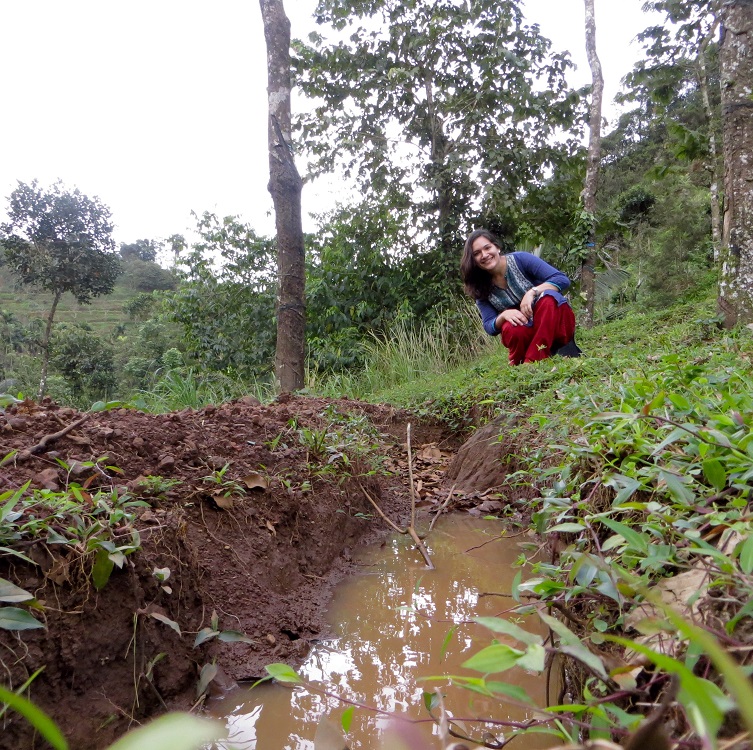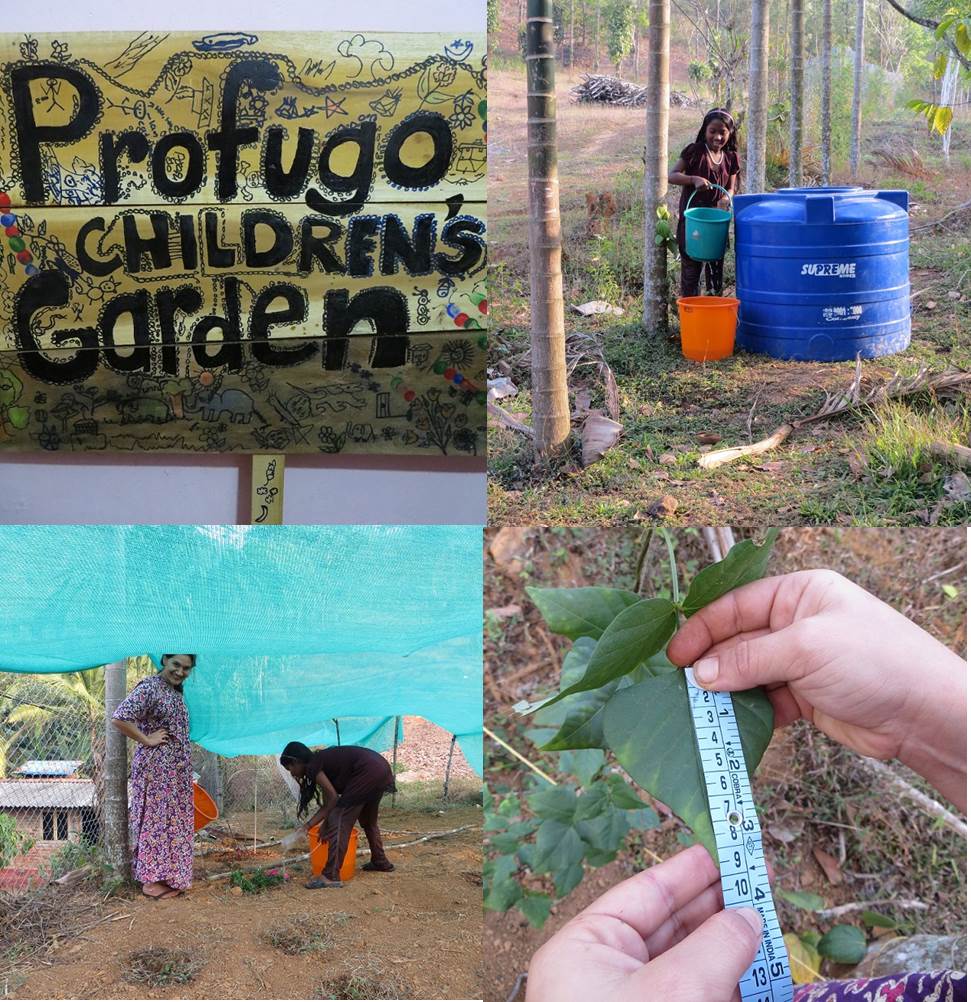 The grass does not shine as bright green on our surrounding hills anymore. While some cold towns in the U.S. are buried by mountains of heavy white snow, here, in Prashanthagiri, a powerful hot sun hovers over the fields. Those dark green and brown crops stand in soil that eagerly awaits the first refreshing drops of the upcoming rainy season.
The grass does not shine as bright green on our surrounding hills anymore. While some cold towns in the U.S. are buried by mountains of heavy white snow, here, in Prashanthagiri, a powerful hot sun hovers over the fields. Those dark green and brown crops stand in soil that eagerly awaits the first refreshing drops of the upcoming rainy season.
Our land at Profugo’s Center of Development is not an exception. Looking at our experimental Children’s Vegetable Garden, I see the little spinach plants struggling to grow, yet they are resilient and are surviving this hot, dry season.
I usually take on the important task of watering the plants with one of our field fellows and Nandana, our neighbor’s youngest daughter as well as her brother. One of us will usually approach the garden and Nandana will jump out of her house and eagerly ask if she could help carry the water bucket. Her little sweet voice is filled with enthusiasm making the otherwise tedious task a treasured part of our day. One evening, while watering the garden, I surveyed the small plants trying not to feel discouraged by their shriveled dry state. Before I could remark on their slow growth, Nandana stopped her cheerful humming to look at me with a beautiful wide smile. She said “Next time the plants are going to be SOOO BIG! Now we know.” I returned an equally bright smile and we both continued to hum together as we finished watering the garden.
Nandana was right. Our experimental garden has helped us learn as we face many challenges that are common to all of our farmers in this community. Profugo Children’s Club has excitedly planted many seeds and remain hopeful, as we wait for the vegetables to sprout. The children’s hope has been our motivation to be ingenious as we try to save their plants from suffering the common ailments due to soil water loss, high sun exposure, lack of nutrients, and pests.
Among our discoveries, we are learning how to prevent water loss and soil degradation with water collection trenches that stop the rainwater from running down our steep hills. To prevent high sun exposure, we learned how to observe sun alienation and understand the proper amount of shading for the healthy growth of the vegetables in this region. We learned how to do mulching, how to use trees, and roof netting to prevent the water from evaporating away before reaching the roots.
To keep the pests away, I have sought out local mentors who have helped me understand how to apply organic pesticides and how to make pest repellents effective for this region. To regenerate the nutrients of our soil, depleted by former intensive cash crop farming, I have learned how to create traditional organic fertilizers on site, using local inputs such as cow manure and bean grinds. I have also been experimenting and studying the fertilizers’ effectiveness by measuring the growth and will start testing vermicompost as well!
It has been a humbling experience to farm during this dry season. There is much to learn from challenges and limitations faced in those dark green and brown fields of our surrounding hills. I have become more observant as I now know to be more alert and ready to learn from the signals of our environment. Our community’s farmers have much to teach about resiliency as their hills cannot move and they have no other option but to face the challenges, learn from former mistakes, and become strong enough to survive the next dry season or torrential rains. I feel humbled and honored to partake in such a great learning opportunity!


Leave a Reply
You must be logged in to post a comment.